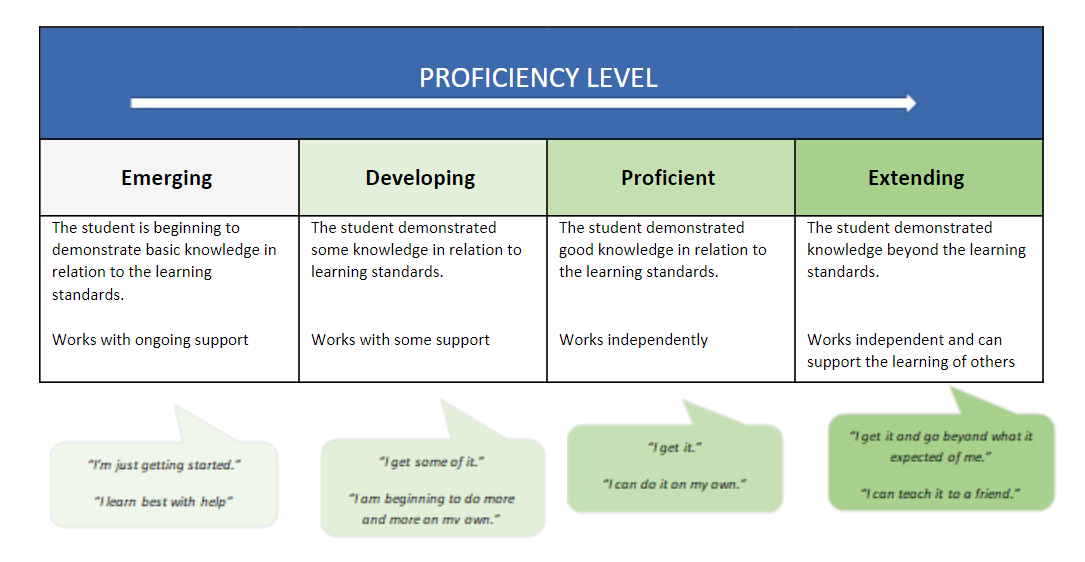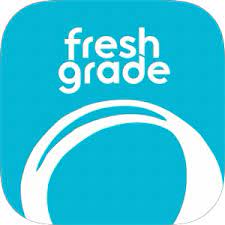
Communicating student learning is a vital component of the learning process and fundamental to student success. This is an ongoing process throughout the school year that involves the teacher, the student and the parent.
The assessment information communicated to parents includes suggestions on how to improve student learning and how parents can support their child in the process. This communication can occur in a number of ways, from traditional report cards, to conferencing, to electronic communication.
The B.C. Ministry of Education requires schools to communicate with parents, regarding their children’s learning, at least three times a year. In Greater Victoria School District, teachers provide a formative snapshot of student learning two times a year, with a third and final summative report card in June. All three report cards describe what the student knows (content), can do (curricular competencies), and understands (transfer of big ideas and concepts) as well as suggestions for ways to support the learning at home.
What’s New?
Transitioning to Proficiency Scale 2021-22 in 14 Elementary Schools
Where We Were
The move to Proficiency Scales is a shift away from using traditional letter grades: A, B, C+, C,… and/or a performance scale: Not Yet Meeting (1), Approaching Expectations (2), Meeting Expectation (3) and Exceeding Expectations (4).
Why the Shift?
Proficiency Scales are based on communicating and describing each student’s growth and progression along a continuum of learning. All reports will continue to reflect strengths, areas for improvement and ways to deepen learning.
For the 2021-22 school year, elementary and middle schools will have the opportunity to shift away from letter grades and the current Performance Scale. Instead they would use Proficiency Scales as a component of communicating student learning with families.
The following schools are included in the proficiency pilot: Campus View, Cloverdale, Craigflower, George Jay, Doncaster, Frank Hobbs, Lake Hill, Margaret Jenkins, Macaulay, Marigold, McKenzie, South Park, Northridge, Oaklands, and Willows Elementary schools.


Professional Development Resources
- Set of Proficiency Scale Visuals – SD61 (File -make a copy to customize)
- More Visuals: Chich Hatching -Ramy Gerber
- Rubric: Character Sketch
- Rubric: Single point with feedback
- Rubric: Summary Paragraph
- Rubric: Understanding Fractions
- Sept 29th – Proficiency Scale ProD – For SD61 Use (File – make a copy to customize)
- Sept 29th – Proficiency Scale ProD with Saanich SD63 – Slide deck (File – make a copy to customize)
- Shared Folder of Resources including SD63 Resources
Reporting
- FreshGrade Report Card Sample
- FreshGrade Connect Report Template
- Reporting Guide for Intermediate -SD61
- Reporting Guide for Primary -SD61
- CSL Proficiency Scale Report Card Primary
- CSL Proficiency Scale Report Card Intermediate
French Immersion Resources
Related Articles and Posts
- Alfie Kohn — The Case Against Grades
- Edutopia – 4 Reasons Teachers are Going Gradeless
- Jordan Tinney – What do Letter Grades Have to do with Performance
Other Resources
- K-9 Student Reporting Policy Pilot Handbook (English) – PDF
- K-9 Student Reporting Policy Pilot Handbook (French) – PDF
- Background-Rationale-Draft-K-12-Student-Reporting-Policy – PDF
- Draft-K-12-Student-Reporting-Policy – PDF


